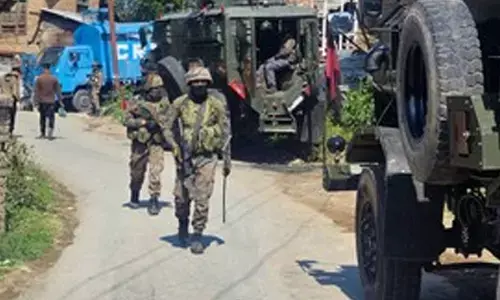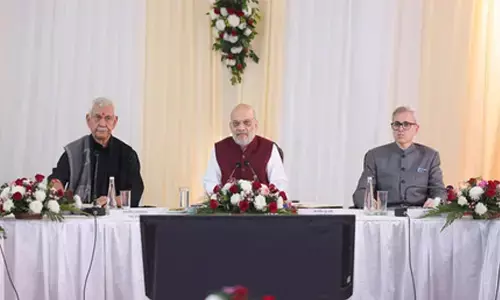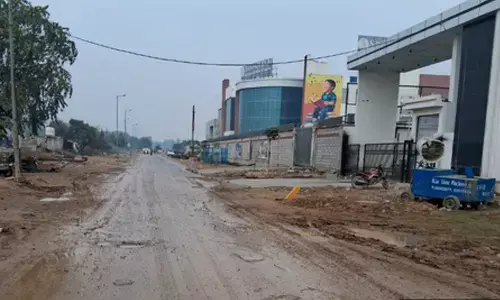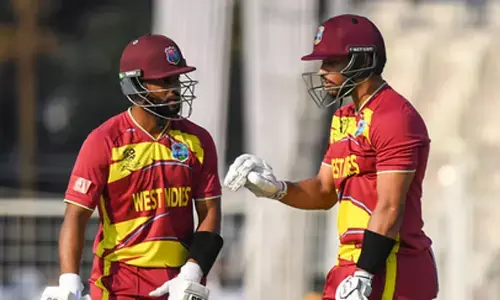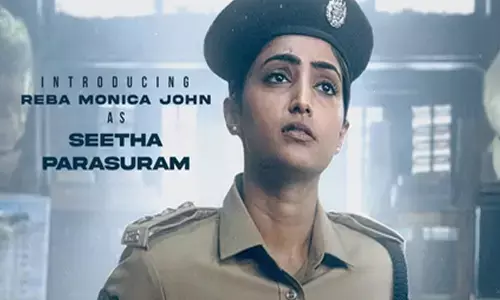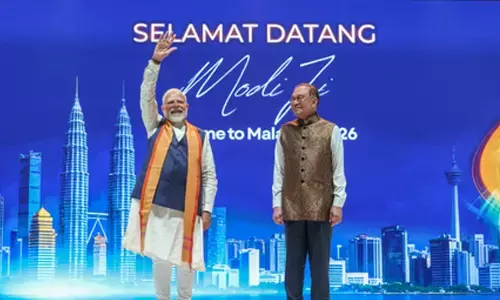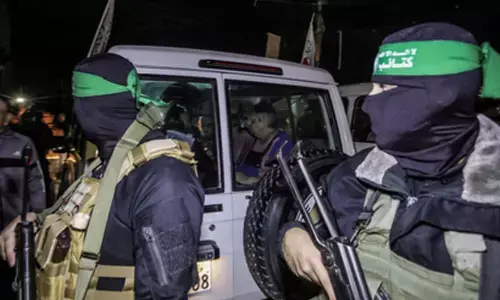Northeast women face glass ceiling in politics?

There are more women than men in the northeast, but just a handful of them were in the poll fray.
.jpg) There are more women than men in the northeast, but just a handful of them were in the poll fray. In fact, Mizoram, Arunachal Pradesh and Nagaland had no women candidates.
There are more women than men in the northeast, but just a handful of them were in the poll fray. In fact, Mizoram, Arunachal Pradesh and Nagaland had no women candidates.
Women outnumbered men in Manipur (women 902,919, men 871,411), Meghalaya (women 789,189, men 776,633), Mizoram (women 355,960, men 346,229) and Arunachal Pradesh (women 379,474, men 378,019).
Yet, only 9.36 percent of the total of 235 candidates were women contesting the Lok Sabha elections in seven northeastern states - Assam (14 seats), Arunachal Pradesh (2), Meghalaya (2), Manipur (2), Tripura (2), Nagaland (one) and Mizoram (one).
"Women electorates are not only more than 50 percent in the voters' list of four of the seven northeastern states; they are in the forefront in both domestic affairs and in the societal sphere. But the women are deprived of sharing governance," social activist Jahnabi Goswami told IANS.
Goswami, the first woman from northeast India to declare herself HIV positive, said that northeast India traditionally is a woman empowered society, though the women are given very less say in politics and governance.
"Northeast women are educated, efficient and conscious of all basic issues...But men political leaders think that we are not capable," said Goswami, who a few years back unsuccessfully contested the elections in Assam.
Of the 235 candidates contesting the 24 Lok Sabha seats in seven northeastern states, only 22 women candidates (9.36 percent) fought the parliamentary polls this time.
In the last Lok Sabha elections in 2009, 18 female candidates fought the elections with only three (two in Assam and one in Meghalaya) emerging victorious.
This time in Mizoram, Arunachal Pradesh and Nagaland, no women candidates were in the hustings while Meghalaya, where the matrilineal system dominates society, a lone woman is in the poll battle, that too as an independent aspirant.
In Tripura and Manipur, there are three and two candidates respectively in the electoral fight and in Assam, 16 female candidates are in the fray, five more than the 2009 parliamentary elections.
Of the 16 women candidates in Assam, two sitting MPs - Bharatiya Janata Party's Bijoya Chakraborty from Guwahati and Union Tribal Affairs Minister Ranee Narah of the Congress from Lakhimpur - were renominated by their parties from the same constituency.
The ruling Congress in Assam has also given nomination to two sitting women legislators - Jonjonali Baruah from Morigaon and Sushmita Dev from Silchar.
Former union minister of state for rural development Agatha K. Sangma, 33, the youngest parliamentarian in the 15th Lok Sabha, decided to stay away.
Tripura Chief Minister Manik Sarkar's wife and social activist Panchali Bhattacharjee said that without reservation of seats for the women in both parliament and state legislative assemblies, no parties, including the Left parties, would nominate adequate number of women in the elections.
"Traditionally in India, men always intended to enjoy more power than women. If you see the history for several hundred years, you will find this that men always dominate the women, except in exceptional cases," she told IANS.
Bijoya Chakraborty said: "Fielding women candidates is the prerogative of the party. Party leaders are the final authority on this issue."
Another woman parliamentarian, Jharna Das, CPI-M's (Communist Party of India-Marxist) Rajya Sabha member from Tripura, also expressed her unhappiness over lesser number of women being fielded by the political parties in northeast in both parliamentary and assembly elections.
"...There are huge numbers of capable women in the northeastern region who are not getting due importance in politics and governance," Das told IANS.
She said that to change society and to transform the mindset of the people, the Left parties, specially the CPI-M, are struggling in the country.
"To empower the women both politically and economically, reservation of seats in legislature is must," the Rajya Sabha member added.
The number of women in the legislative assemblies of the seven northeastern states is equally depressing, if not worse. Of the total of 466 seats in the assemblies of seven northeastern states, only 24 (5.15 percent) are women.
Mizoram, Meghalaya and Nagaland have no women in the state assemblies. Of the 60-member assembly in Arunachal Pradesh and Manipur, there are two and three female legislators respectively. Assam has 14 women MLAs among 126 elected representatives while Tripura has five women lawmakers in the 60-member house.
Next Story








